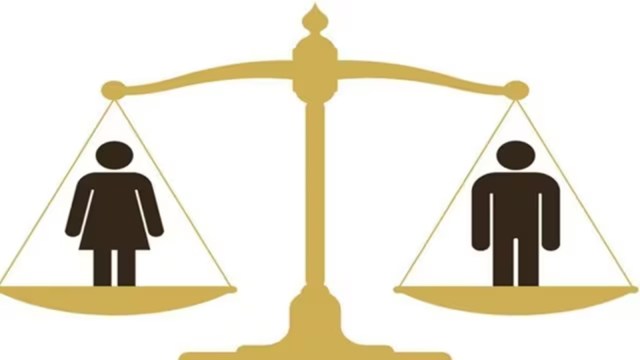
Following Prime Minister Narendra Modi’s Independence Day call for “a secular civil code” to replace the current “communal civil code”, this paper has published two OpEds arguing in favour of his call, one by BJP member and president of the India Foundation, Ram Madhav (The necessity of a secular UCC, IE, August 17, 2024), and the other by Mumbai BJP president Hitesh Jain (A code that unifies, IE, August 20, 2024).
While their use of the term secular is a welcome course corrective from the BJP’s earlier and crassly dismissive “sickular”, neither writer specifies what a secular civil code would comprise. Madhav’s examples of what needs reform cite only Muslim personal law. He mentions Ambedkar’s deep disappointment at the Nehru administration’s failure to push through a uniform civil code but omits the fact that Ambedkar resigned over the failure to push through a reformist Hindu civil code.
Jain’s article is again high on rhetoric and low on fact. It argues that a common code will improve the condition of women and simplify legal processes, but the only example he gives regards conversion by men and the figure he gives for pending cases is from 2020 not the 50.2 million of 2023. Like Madhav, he pitches the debate in terms of a Uniform Civil Code versus minority personal law, instead of the rights of women.
As the Constituent Assembly and parliamentary debates make clear, Article 44’s call for a Uniform Civil Code became and remained a Directive Principle rather than a constitutional right. This is because women’s rights-based reform of personal laws met with concerted opposition from conservative Hindu as well as Muslim and Christian members of an overwhelmingly male-dominated constituent assembly in which women constituted around 4 per cent.
Facing minority members’ resistance to a uniform civil code, Nehru decided that the majority should lead with a common Hindu civil code to reassure minorities that reform did not threaten religious rights. But this initiative foundered on conservative Hindu opposition from within the Congress as well as the Hindu right wing. The Hindu code that was eventually enacted as four separate acts severely limited women’s rights in marriage, divorce and inheritance.
Whether PM Modi’s conception of a secular civil code will again fail on women’s rights is unclear. But we do have one example of what a BJP-drafted civil code might comprise. The Uttarakhand Uniform Civil Code essentially replicates the provisions of the Hindu codes of marriage, divorce and inheritance. It allows divorce on grounds of conversion to a different religion from the spouse. When read together with Uttarakhand’s Freedom of Religion Act, which mandates that a couple seeking interfaith marriage must notify the authorities a month earlier to allow for objections, it is clearly communal.
Nor does it advance women’s rights or the freedom to choose. On the contrary, it builds on laws drafted three-quarters of a century ago, adopting provisions that overlap between religious and secular personal laws such as the Special Marriage Act, including the restitution of conjugal rights and a bar on divorce during the first year of marriage. With a difference. The older laws did not criminalise violation; this one does. Anyone dissolving a marriage before the one-year rule can be imprisoned for up to three years. It also differs, glaringly, from the Special Marriage Act in another respect. It does not recognise interfaith marriages.
Its most startling section is on “live-in relationships”. Like marriages and divorces, these too have to be registered. And local police stations have to be informed, leaving couples vulnerable to harassment and/or blackmail by police, especially since an unregistered live-in couple can be imprisoned for three months and/or pay a fine. The term of imprisonment can go up to six months if a couple fails to register after the registrar sends them a notice to do so.
Instead of facilitating unity or diversity, the Uttarakhand code has made it even more difficult. Just a month ago, an interfaith couple was forced to go to the Uttarakhand High Court seeking protection against parental misuse of this provision. The pair had sought to register their relationship, but the registrar had refused “for technical reasons”. The High Court directed them to re-apply and mandated protection from harassment during the registration period. What happens after?
As the case above shows, the fear that a Uniform Civil Code will be divisive is not a religious fear alone; perhaps not even primarily. Social attitudes towards marriage, divorce and inheritance have been in profound churn for several decades now, between familial authority and the right to choose. Young Indians of all persuasions increasingly look for a choice of relationship before, in, or instead of marriage, often in the teeth of parental coercion. Young women increasingly seek equality rather than patronage. The Uttarakhand code forces them back under parental control rather than protecting their freedom of choice; it is an authoritarian legislation, not a rights-based one.
It would have been helpful if Madhav and Jain had clarified that a common civil code should not repeat the fearsome Uttarakhand version, challenges against which are pending in the Supreme Court. A timely judgment could set constitutional benchmarks on what a women’s rights-based common civil code can or cannot comprise. Assam and Gujarat have already declared their intention of following Uttarakhand’s example. Whether all-India or state-by-state, restriction of women’s and youth rights must surely be unacceptable.
Radha Kumar’s latest book is The Republic Relearnt: Renewing Indian Democracy, 1947-2024 (Penguin Vintage)



